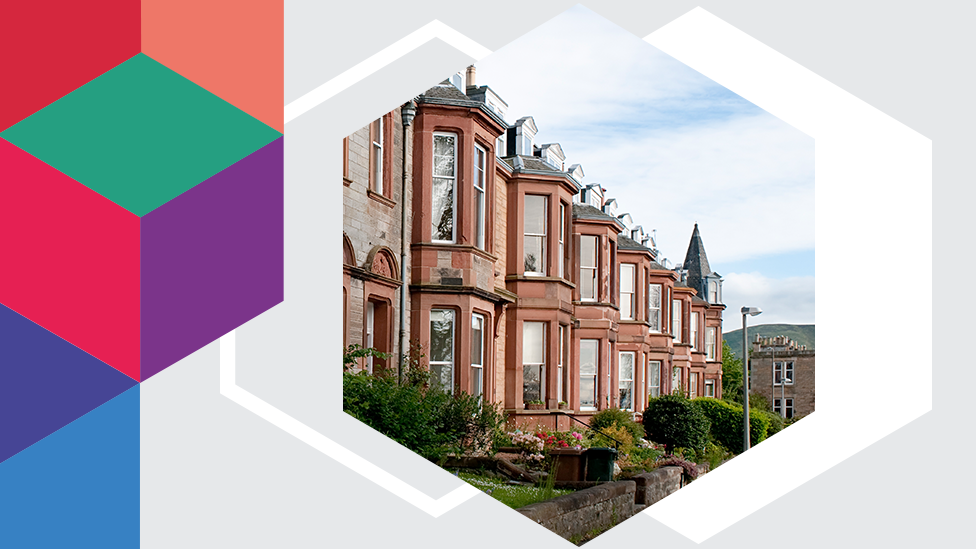Scottish elections 2022: Voters head to polls to elect new councillors
- Published
Scotland elections 2022: What you need to know before heading to the polls
Voters across Scotland are going to the polls to elect more than 1,200 new councillors to the country's 32 local authorities.
Parties have been hitting the campaign trail over the last few weeks, with big issues including the cost of living crisis, council funding, education, and other local services.
Local elections are also taking place in England and Wales, and voters in Northern Ireland are being asked to elect their next government.
How and when can I vote?
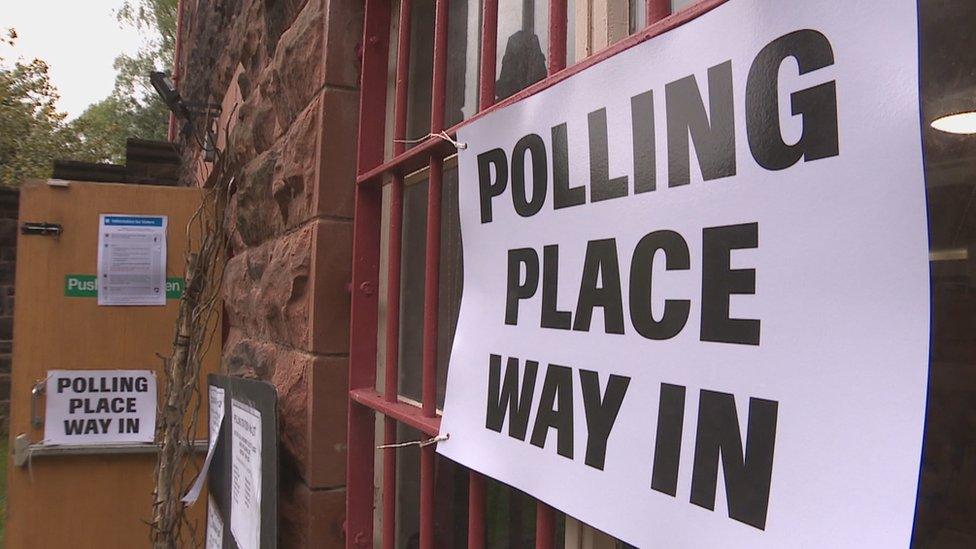
Polls opened at 07:00 on Thursday, and close at 22:00.
There are three ways to vote:
in person at a polling station (often in places such as schools and community centres - you can find details of your polling place here, external)
by postal vote
by nominating someone to vote for you (a proxy vote)
One in five people in Scotland has registered for a postal vote in this election.
If you've forgotten to post your ballot back, you can hand it in at your local polling station.
How are councillors elected?
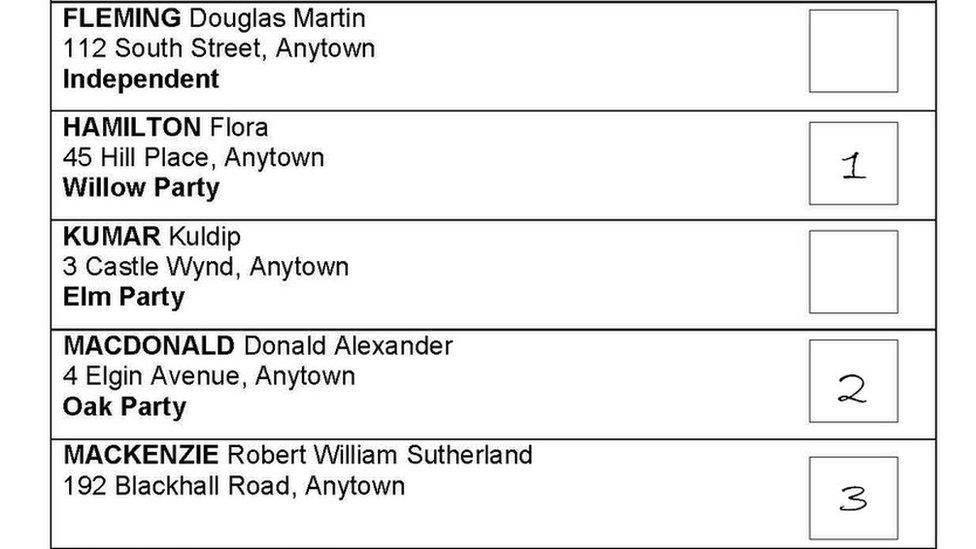
Voters rank their preferences using numbers in council elections in Scotland
Each council is divided into smaller areas called wards, with every ward electing between one and five councillors.
Unlike other elections in Scotland, people vote using numbers - rather than by putting an X in the box next to their preferred candidate.
You will be given a ballot paper that lists all of the candidates who are standing to be councillors in your ward.
You will be then be asked to number the candidates in the order of your choice by putting 1, 2, 3 and so on in the box next to each one - although you don't need to rank every candidate if you don't want to.
This is known as the Single Transferable Vote (STV) system, with councillors elected through a mathematical process based on how they are ranked by voters.
When will we know the results?
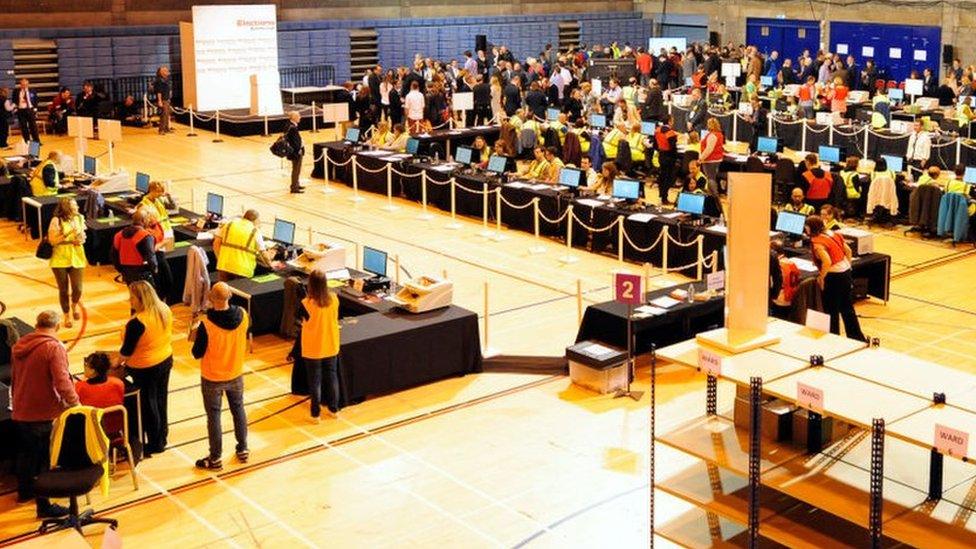
An electronic counting system is used in Scotland's council elections
An electronic counting system will be used, with dedicated count centres in each of the 32 council areas.
Where a machine is unable to read the vote on a ballot paper, it will be sent for adjudication by count staff who will try to work out who the person wanted to vote for. If the presiding officer can't be sure who you're voting for then your ballot will be rejected.
Counting across the country will begin between 08:00 and 09:30 on Friday, and the results should be known the same day.
However, often no party wins a majority of seats and so groups of councillors work together to from coalitions. It can take a few days for these arrangements to be made, so it might be next week before it becomes clear who will have control over certain councils.
What are councils responsible for?
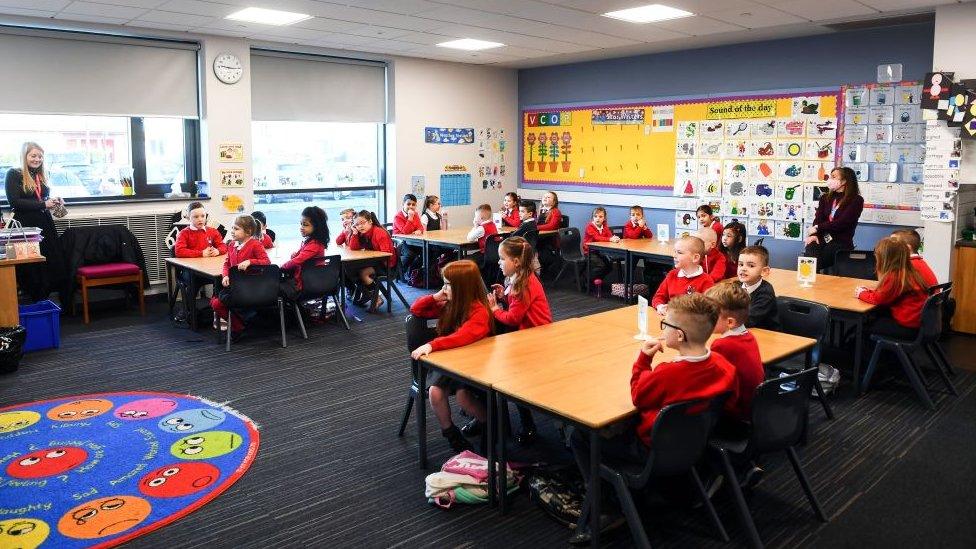
Councillors represent you on your council, which is responsible for providing local public services such as:
education
social care
housing
waste management
local roads and public transport
leisure and cultural services and libraries
Councils raise money through the council tax, which they are able to set themselves - although the bulk of their finance comes from the Scottish government.
What happened last time?
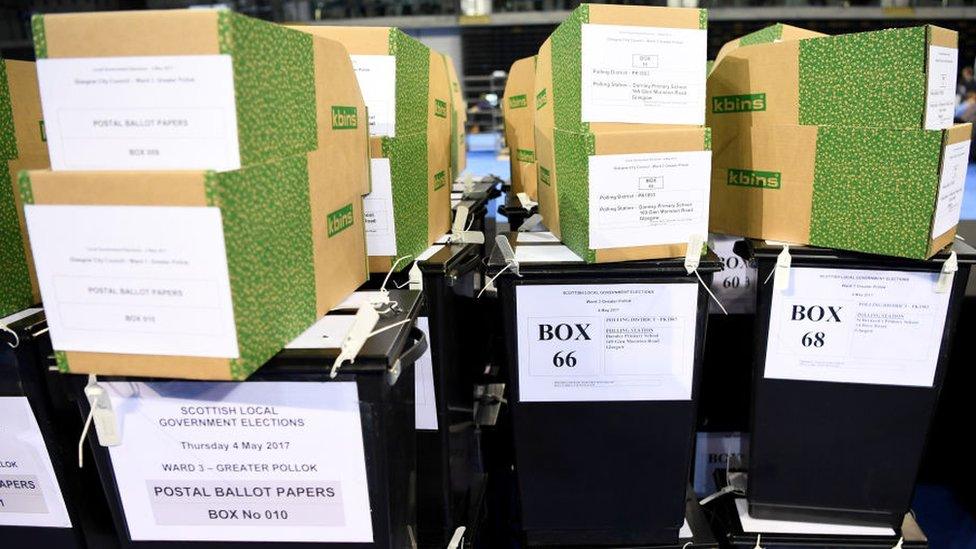
The last council elections were held on 4 May 2017, with the SNP remaining as the largest party across the country after winning 32% of the first preference votes.
The SNP also replaced Labour as the largest party in both Glasgow and Edinburgh - the first time it had control of either of the country's two largest cities.
The Conservatives increased their vote and number of seats across much of the country, including in some areas where the party had previously not done well.
No single party had a majority of seats in any Scottish council, external - so all were either run by a coalition or a minority administration.

Where to follow the results
Journalists will be reporting from around the country as the compositions of the councils become clear.
You can also follow all the results as they come in on BBC Scotland news website and on Twitter, external.
On TV, Reporting Scotland will have the latest at 13:30, 18:30 and 22:30 on BBC One Scotland.
And The Seven will be on the BBC Scotland channel at 19:00.
On BBC Radio Scotland there'll be in-depth reports and analysis on Good Morning Scotland, 06:00-09:00, Lunchtime Live, 12:00-13:30 and Drivetime, 16:00-18:00.

Related topics
- Published4 May 2022

- Published4 May 2022
